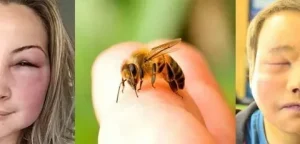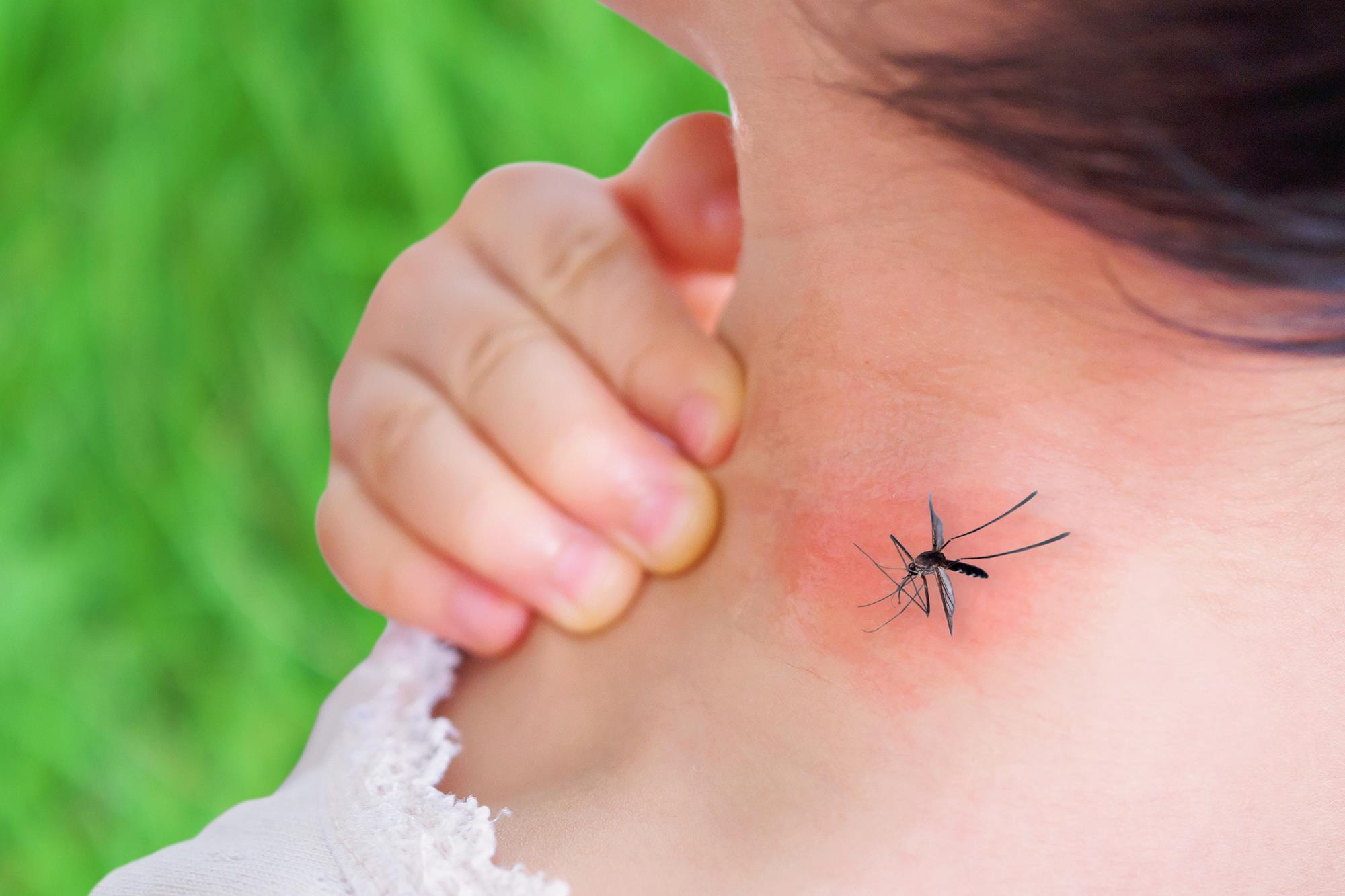Introduction
Insect stings, while often a minor inconvenience, can pose serious threats to those with allergies. This comprehensive guide sheds light on the various aspects of insect sting allergies, including symptoms, treatment options, prevention strategies, and long-term solutions.
Three Types of Reactions
When it comes to insect stings, reactions can vary widely among individuals. To navigate this spectrum effectively, it’s essential to recognize the three main types of responses:
- Normal Reaction:
- Pain, swelling, and redness occur around the sting site.
- Generally, these symptoms are localized and subside with time.
- Large Local Reaction:
- Swelling extends beyond the sting site, potentially affecting an entire limb.
- Although alarming in appearance, large local reactions are usually no more serious than normal reactions.
- Peak at around 48 hours and gradually improve over 5 to 10 days.
- Allergic Reaction:
- The most severe response, often requiring immediate medical attention.
- Symptoms can include trouble breathing, widespread hives, swelling of the face, throat, or mouth, wheezing, restlessness, rapid pulse, and more.
- Anaphylactic reactions are emergencies that demand prompt treatment.

Spotting Symptoms
Understanding the symptoms of insect sting allergies is crucial for timely intervention. Here’s a detailed breakdown of mild and severe allergic reactions:
Mild Allergic Reaction:
- Pain at the site of the sting
- Redness and localized warmth
- Appearance of pimple-like spots
- Mild to moderate swelling
- Itching
Severe Allergic Reaction (Anaphylaxis):
- Difficulty breathing
- Widespread hives forming a red, itchy rash
- Swelling of the face, throat, mouth, or tongue
- Wheezing or trouble swallowing
- Restlessness and anxiety
- Rapid pulse
- Dizziness or a sharp drop in blood pressure
- Stomach cramps, nausea, or diarrhea
Identifying these symptoms promptly is crucial for determining the appropriate course of action.

How Common Are Insect Sting Allergies?
Approximately 2 million Americans suffer from allergies to the venom of stinging insects. Those allergic to bee stings may also react to yellow jackets, wasps, and hornets. Many of these individuals face the risk of life-threatening allergic reactions, emphasizing the importance of awareness and preparedness.
Immediate Treatment for Non-Allergic Reactions
For those not allergic to insect stings, immediate and appropriate treatment can mitigate discomfort and complications. Follow these steps:
- Remove Stinger:
- If stung by a bee, carefully remove the stinger within 30 seconds to prevent more venom injection.
- Gently scrape the sac and stinger out with a fingernail or a stiff-edged object, such as a credit card. Avoid squeezing the sac or pulling on the stinger to prevent additional venom exposure.
- Clean the Area:
- Wash the stung area with soap and water to reduce the risk of infection.
- Apply an antiseptic to promote cleanliness and prevent further complications.
- Apply Soothing Ointment:
- Use a soothing ointment like hydrocortisone cream or calamine lotion on the affected area.
- Cover the area with a dry, sterile bandage to protect against external irritants.
- Manage Swelling:
- If swelling is an issue, apply an ice pack or cold compress to the area.
- Over-the-counter oral antihistamines can help ease itching, swelling, and hives. However, exercise caution and consult a doctor before giving them to children or pregnant women.
- Pain Relief:
- Take an over-the-counter NSAID pain reliever, such as ibuprofen, after checking the label for any contraindications.

Emergency Measures for Allergic Reactions
In cases of severe allergic reactions, swift action is paramount. Immediate treatment involves the use of epinephrine, a life-saving injection that can be self-administered before seeking professional medical help. It is crucial to understand the following:
- Epinephrine Administration:
- Those with severe allergic reactions should carry an epinephrine kit at all times.
- Administer the epinephrine shot promptly to halt a more severe allergic reaction.
- Emergency Medical Care:
- Even if symptoms seem to subside after using epinephrine, seeking emergency medical care is essential.
- Hospitalization may be required, emphasizing the seriousness of allergic reactions to insect stings.

Prevention
While it may be challenging to completely avoid insect stings, adopting preventive measures significantly reduces the risk. Here are practical tips to create a safer environment:
- Recognize Insect Nests:
- Identify and avoid insect nests. Yellow jackets nest in the ground, honeybees in beehives, and hornets/wasps in various locations like bushes, trees, and buildings.
- Proper Attire:
- Wear shoes and socks when outdoors to minimize exposure to stinging insects.
- Appropriate Clothing in Nature:
- Wear long-sleeved shirts, long pants, socks, and closed shoes when in rural or wooded areas.
- Avoid Attractants:
- Refrain from wearing perfumes or brightly colored clothing, as they tend to attract insects.
- Outdoor Activities Caution:
- Individuals with severe allergies should have a companion during outdoor activities like hiking, boating, swimming, or golfing.
- Use Screens and Repellents:
- Install screens on windows and doors to prevent insects from entering your home.
- Consider using insect repellents when spending time outdoors.
- Garbage Can Maintenance:
- Regularly spray garbage cans with insecticide and keep them covered.
- Landscaping Considerations:
- Avoid or remove plants and vines that attract insects around your home.
- Identification and Preparedness:
- If severely allergic, wear identification stating the allergy.
- Keep an epinephrine kit accessible at all times for emergency use.
A Lifesaving Measure
Epinephrine kits, commonly known by the brand name EpiPen, play a pivotal role in managing severe allergic reactions. These kits allow individuals to administer epinephrine promptly, providing immediate relief before professional medical help arrives.
- Prescription Requirement:
- A doctor’s prescription is necessary to obtain an epinephrine kit.
- Carry two kits at all times to ensure preparedness.
- Preventing Drug Interactions:
- Inform your doctor about any medications you are currently taking to prevent potential drug interactions.
Preventing Allergic Reactions with Allergy Shots
For individuals prone to severe insect sting allergies, allergy shots offer a long-term preventive solution. Here’s what you need to know:
- Effectiveness of Allergy Shots:
- Allergy shots are approximately 97% effective in reducing the risk of severe reactions.
- Tiny amounts of insect venom are introduced into the body over time, allowing the immune system to build tolerance.
- Testing and Administration:
- Before starting allergy shots, individuals undergo testing to determine specific insect allergies.
- Shots are typically administered once or twice a week, with the dose gradually increasing until reaching a maintenance level in 3 to 6 months. Treatment for other health problems
- Safety Considerations:
- While generally safe, allergy shots may cause mild side effects like redness and warmth at the injection site.
- Individuals with heart or lung conditions or those on certain medications should consult their doctor due to potential increased risks.

Conclusion
In conclusion, understanding, managing, and preventing insect sting allergies require a multifaceted approach. By familiarizing yourself with symptoms, immediate treatment measures, preventive strategies, and long-term solutions like allergy shots, you can navigate the complexities of insect stings with confidence and reduce the risk of severe allergic reactions. Stay informed, be prepared, and prioritize your well-being in the face of potential insect encounters.




